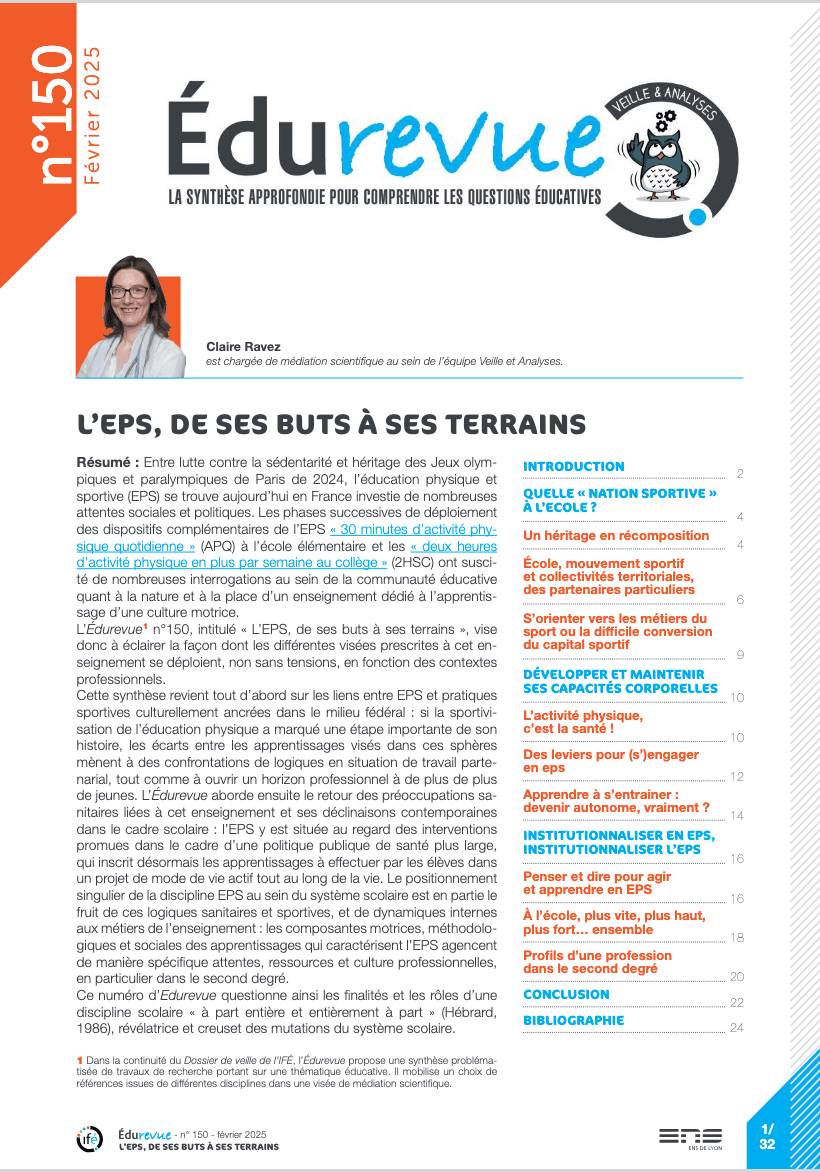L'école du spectateur en français langue étrangère. Pratiques créatives du langage dans le rapport à la théâtralité
Auteur(s) : CARON Elsa
Date de soutenance : 2020
Thèse délivrée par : Université Lumière-Lyon 2
Section(s) CNU : section 07 : Sciences du langage
Sous la direction de : Christine DEVELOTTE
Jury de thèse : Bertrand, Olivier ; von Münchow, Patricia ; Aden, Joëlle ; Le Goff, François ; Marquilló Larruy, Martine ; Rollinat-Levasseur, Eve-Marie ; Develotte, Christine
"Démarche d’accompagnement au spectacle vivant, l’école du spectateur incite à appréhender le théâtre comme une pratique artistique vivante à travers la représentation. Le travail proposé dans cette recherche envisage le spectateur dans son rapport à la langue étrangère dans l’expérience de la théâtralité. Il s’agit de comprendre comment la langue des apprenants se construit dans la confrontation avec les langages de la scène. Dans un premier temps, nous situons l’école du spectateur en tant que pratique de la théâtralité envisagée comme ce qui fait la spécificité de l’énonciation théâtrale, nous en définissons les enjeux pour un apprentissage de la langue étrangère. Notre cadre méthodologique confronte perspective interactionniste dans la réception collective des pièces, analyse du discours et de la gestuelle, notamment dans le jeu dramatique. Nos analyses montrent comment les apprenants s’approprient le spectacle en le co-reconstruisant dans les interactions et en s’appuyant sur une forme de mémoire collective. Nous envisageons ensuite le rôle des émotions et des perceptions dans la réception ainsi que dans la construction de langages pluriels, soulignant la relation esthétique qui s’instaure avec les spectacles. Nous analysons dans quelle mesure la subjectivité de l’apprenant se construit, notamment à travers les phénomènes d’identification. L’école du spectateur est enfin envisagée comme lieu d’exploration et d’expérimentation des langages dans le retravail créatif du texte scénique, travail qui fait émerger une troisième voix dans le croisement de différentes formes d’énonciation, créant des procédés d’interdiscursivité produits par la réception toujours active des spectacles. "
The school of the spectator in French as a foreign language (FLE). Creative practices of the language in the scope of theatricality
"Considered as a tool to understand living performance, the school of the spectator encourages participants to apprehend drama as a living artistic practice through representation. This work considers the spectator in his or her relation to the foreign language through the experiment of theatricality. The targeted language of learners builds up through the confrontation with the languages of the stage. First, we define the school of the spectator as a practice of theatricality considered as the specificity of theater enunciation, the issues are then considered within the context of French as a foreign language acquisition. Our methodology confronts interactionist perspectives in the collective reception of plays, discourses and gestures analysis, in particular in dramatic play. The study demonstrates how the learners take ownership of the performance by co-rebuilding it through interactions and by leaning on a form of collective memory. We then examine the role of emotions and perceptions in the reception and construction of several languages, underlining the aesthetic relationship built between participants and the performances. We analyze how the subjectivity of learners grows, especially through the identification process. Finally, the school of the spectator is considered as a place for the exploration and experimentation of languages through the creative re-working of the scenic language. This practice allows a third voice to emerge in the crossing of various forms of enunciation, creating interdiscursivity processes produced by the always active reception of performances by spectators."
URL : https://tel.archives-ouvertes.fr/tel-02945415/document
mot(s) clé(s) : langues vivantes, ressources pour enseigner ou apprendre












